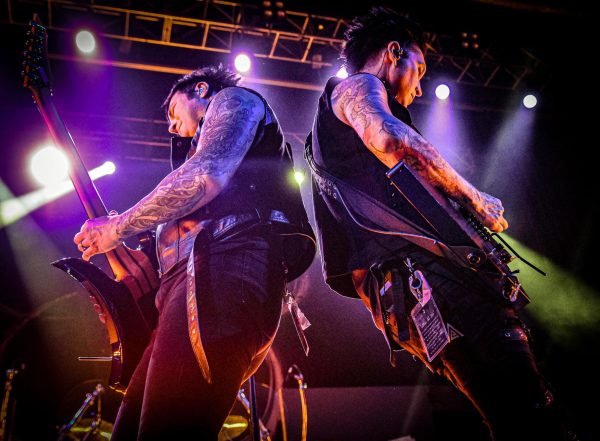We can learn from the dichotomy of Ellen Degeneres


Illustration by Alex Hanks
September 11, 2020
TV personality Ellen Degeneres has recently reached the forefront of social media discourse following recent allegations of workplace misconduct and mistreatment of various employees, interns and even guests on her show.
Throughout Ellen’s tenure as America’s favorite LGBTQ advocate, she has received an outpouring of praise and was even awarded the Presidential Medal of Freedom by then-President Barack Obama in 2016. Ellen’s values have always seemed to be aligned with progressive ideas, and she has been championed by the LGBTQ community — until lately.
Most of us have heard the stories about Ellen refusing to stand in the same room as an intern or about her humiliating her guests and putting hidden camera footage of them on national television.
Many would consider a commentary on yet another celebrity allegedly showing a lack of integrity by completely disregarding the humanity of those she perceives as inferior to be a commentary not worth writing. However, her story could serve as a cautionary tale to progressives.
A prime example of what we ought to hold Ellen accountable for occurred when Mariah Carey appeared on Ellen’s television show in 2008. At the time, publications and tabloids were devoting a lot of attention to rumors that Carey was pregnant, and Ellen decided to take it a few steps further by attempting to coerce Carey into drinking wine on national television in an effort to call her bluff. Carey expressed discomfort, but who wouldn’t after being forced to announce your pregnancy to millions of strangers on screen.
But by far the biggest slap in the face to her base was the infamous footage of her and former President George W. Bush sharing a press box at an NFL game. Bush, it must be remembered, strongly stated his opposition to same-sex marriage throughout his political career. During his 2004 presidential re-election campaign, he even called for a constitutional amendment to outlaw same-sex marraige nationwide.
Ellen tried to use her outing with Bush as this strange symbol of kindness and tolerance. But when you are sitting by a former U.S. President who spent eight years fighting against your mere existence, you should expect an outpouring of criticism, not only from the LGBTQ community but from fans and progressives alike.
There are many other instances of misbehavior on Ellen’s part, such as when she degraded one of her guest’s translators or when she embarrassed an audience member with live camera footage because she took more than one article of free Ellen merch before the show. Someone who is primarily known for their work of creating a more compassionate and tolerant society should not have this type of behavior attached to their legacy, but Ellen does, and seeing if the general public decides to cancel her during the coming months will be interesting to see.
In my opinion, while we shouldn’t resort to deplatforming Ellen because of a collective public revulsion for her actions, we should start championing LGBTQ celebrities who have shown through their actions that they are genuinely invested in positive movements with pure intentions. By no means does Ellen deserve to be another victim of cancel culture, but in the process of finding new role models for LGBTQ youth to look up to, we have to give Ellen the credit, and blame, she rightfully deserves.
Her humanitarianism has earned her high praise from Barack Obama himself and from various foundations and award shows. She has grown her role as a philanthropist, raising millions of dollars for children’s hospitals, donating to hurricane relief, buying holiday gifts for underserved youth and attaching her name to many other good deeds.
It is important to keep in mind that Ellen’s track record of harsh behavior on screen should not invalidate her truth as a member of the LGBTQ community.
We must remain critical of those who have a large platform and are vocal about societal problems. But in doing so, we can’t forget Ellen’s contributions. We must give the same type of platform Ellen has to other LGBTQ celebrities, artists and activists. We especially need to grant this same representation to LGBTQ members of color and work to make certain that the people we are watching on TV are representative of the life experiences and core ethics of what it means to be a progressive voice on TV. The resurfacing of so many questionable Ellen Degeneres clips, combined with her recent myriad allegations, could be the catalyst for that shift to take place.











